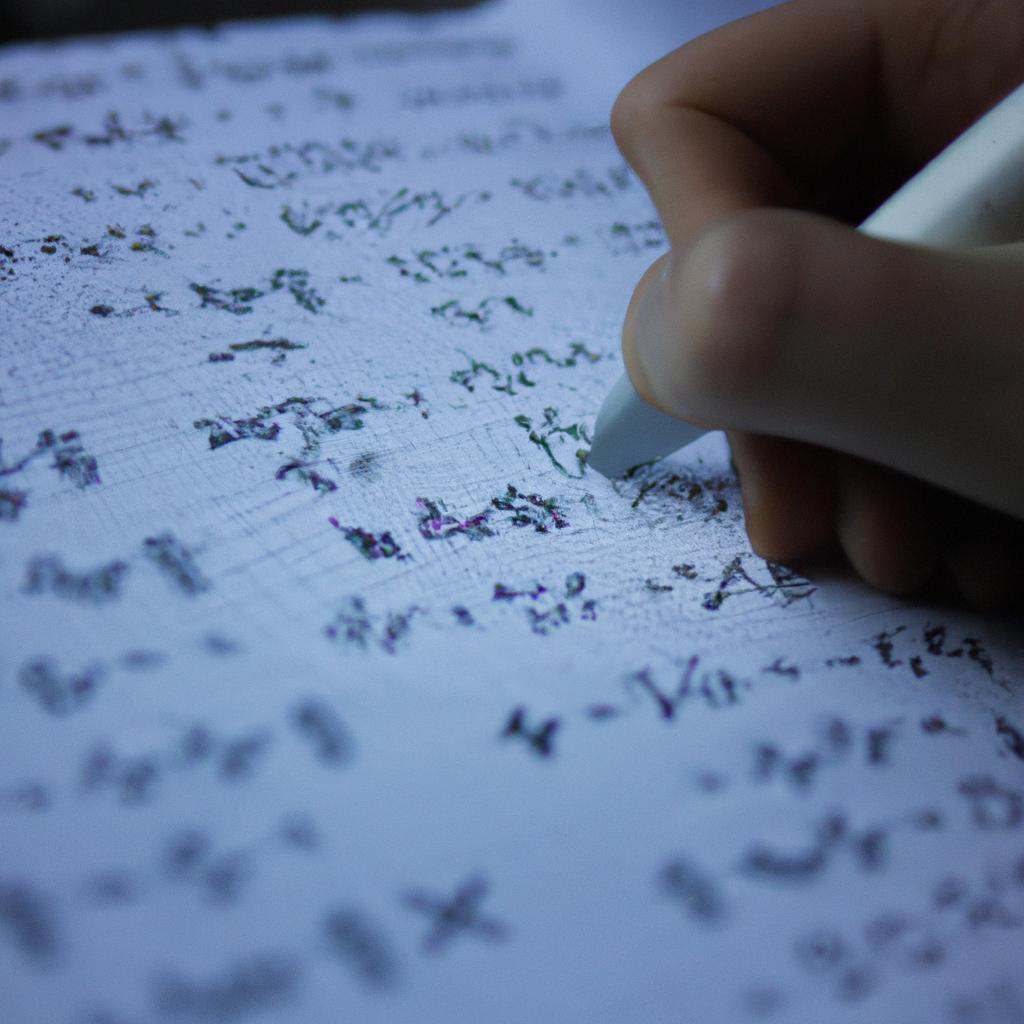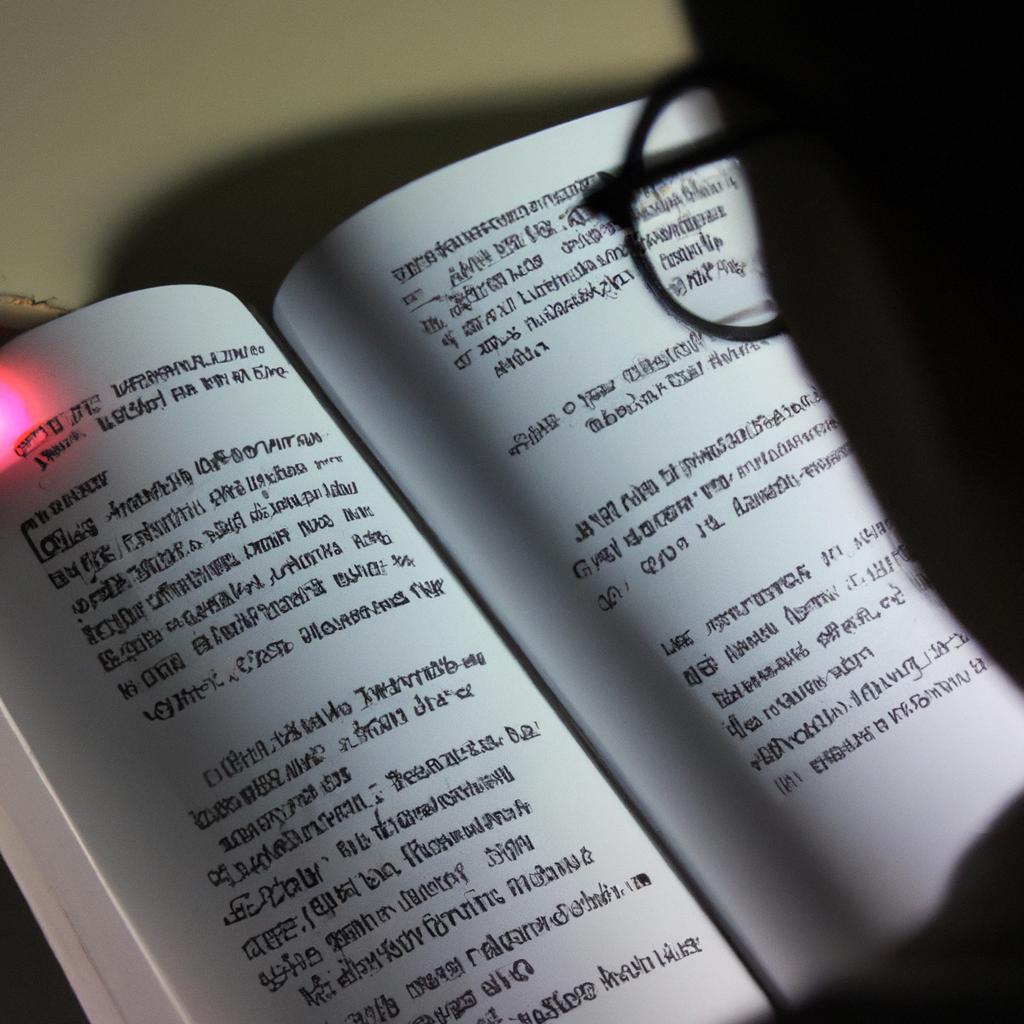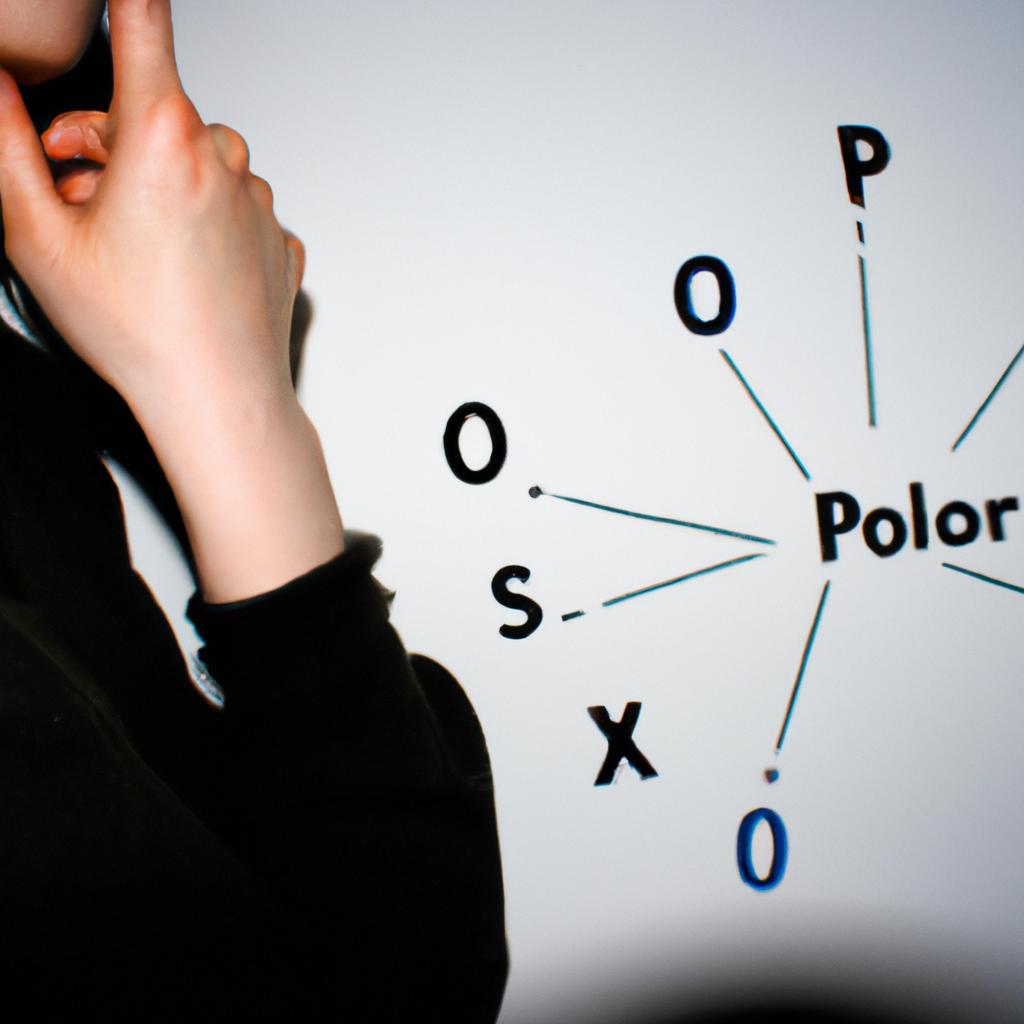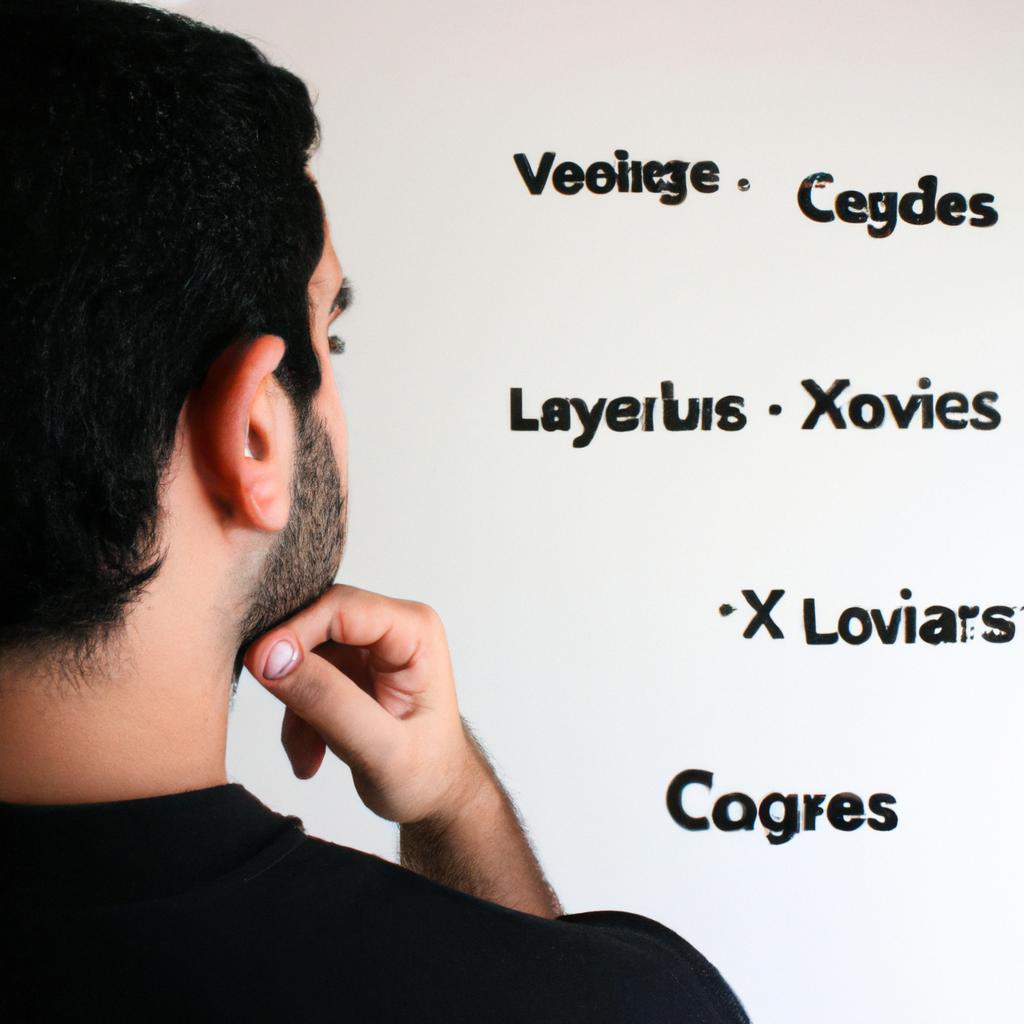Boolean Algebra and Its Role in Philosophical Logic.

The study of Boolean algebra and its application in philosophical logic has been a subject of interest for scholars and philosophers alike. At its core, Boolean algebra is a mathematical system that deals with binary variables and logical operations based on the principles of true or false. One example that illustrates the significance of Boolean algebra in philosophical logic is the concept of syllogism, where propositions are evaluated using logical operators such as conjunction (AND) and disjunction (OR).
By employing the principles of Boolean algebra, philosophers can analyze complex arguments and determine their validity through deductive reasoning. The use of symbolic notation allows for precise representation of propositions, enabling researchers to identify patterns in logical structures. Additionally, Boolean algebra plays a crucial role in resolving paradoxes and inconsistencies within philosophical systems by providing clear rules for evaluating truth values.
Understanding the fundamental concepts behind Boolean algebra provides philosophers with a powerful toolset for analyzing arguments, constructing valid proofs, and assessing the coherence of various philosophical theories. This article aims to explore the foundations of Boolean algebra and highlight its relevance in shaping contemporary debates within philosophical logic. Through examining notable examples and discussing key theoretical frameworks, we will delve into how this mathematical discipline contributes to our understanding of rationality, argumentation, and knowledge acquisition.
Definition of Boolean algebra
Definition of Boolean Algebra
Boolean algebra is a mathematical structure that deals with binary variables and operations. It was first introduced by the mathematician George Boole in the mid-19th century as a way to analyze logical propositions using symbols and equations. The principles of Boolean algebra have since found applications in various fields, including computer science, electrical engineering, and philosophy.
To illustrate the concept of Boolean algebra, consider an example involving two students: Alice and Bob. Let’s assume that Alice always brings her umbrella when it rains, while Bob only carries his umbrella if there is also thunder. We can represent these situations using boolean variables: let A denote whether it is raining and B indicate the presence of thunder. In this case, the statement “Alice brings her umbrella” can be expressed as A = true, while “Bob carries his umbrella” can be represented as B = true.
One key aspect of Boolean algebra is its ability to express complex relationships between variables through logical operators such as AND, OR, and NOT. These operators allow us to combine or manipulate boolean values based on their truth values. For instance, we could use the operator AND (represented by ∧) to determine under what conditions both Alice and Bob would bring their umbrellas simultaneously:
- If it is raining (A = true) ∧ there is thunder (B = true), then both Alice and Bob bring their umbrellas.
- If either one of them does not occur (A = false ∨ B = false), then at least one person will not carry an umbrella.
The power of Boolean algebra lies in its simplicity yet versatility for representing and manipulating logical statements. By employing logic gates like AND (∧), OR (∨), and NOT (¬), complex systems can be broken down into basic components and analyzed step-by-step.
Moving forward to discuss the basic operations of Boolean algebra allows us to delve deeper into how these simple but fundamental concepts apply to more intricate logical reasoning.
Basic operations of Boolean algebra
Transitioning from the previous section, where we explored the definition of Boolean algebra, it is now crucial to understand its fundamental role in philosophical logic. To illustrate this significance, let us consider a hypothetical scenario involving a student attempting to solve logical puzzles.
Imagine a young learner named Alex who embarks on an adventure through the intricate world of logical reasoning. As Alex encounters various puzzles and paradoxes along the way, they quickly realize that understanding Boolean algebra is essential for unraveling complex arguments and evaluating truth values. With this knowledge, Alex becomes equipped to navigate through different propositions by employing basic operations such as conjunction (AND), disjunction (OR), and negation (NOT).
The practical application of Boolean algebra in philosophical logic can be summarized using the following key points:
- Simplification: Through applying Boolean laws and identities, one can reduce complex logical expressions into simpler forms, making them easier to comprehend and analyze.
- Consistency checking: By utilizing Boolean algebra techniques, inconsistencies within sets of propositions can be identified. This process ensures coherence and reliability when constructing valid arguments.
- Deductive reasoning: Boolean algebra provides a solid foundation for deductive reasoning, enabling individuals to make sound conclusions based on established premises.
- Problem-solving facilitator: Whether investigating ethical dilemmas or analyzing scientific hypotheses, Boolean algebra serves as a powerful tool for problem-solving across diverse fields.
To further emphasize these points visually, consider the following table showcasing how Boolean operators operate on binary inputs:
| Input A | Input B | AND Operation | OR Operation |
|---|---|---|---|
| 0 | 0 | 0 | 0 |
| 1 | 0 | 0 | 1 |
| 0 | 1 | 0 | 1 |
| 1 | 1 | 1 | 1 |
From this table, it becomes evident that Boolean algebra plays a crucial role in determining the outcomes of logical operations. By applying these operators to binary inputs, one can assess the truth values and validity of propositions.
In light of its significance in philosophical logic, understanding Boolean algebra’s application in computer science takes on even greater importance. The subsequent section will delve into how this foundational concept is employed within the realm of computing systems, highlighting its impact on modern technology and problem-solving methodologies.
Boolean algebra’s application in computer science
Transitioning seamlessly from the previous section, which discussed the basic operations of Boolean algebra, we now delve into its crucial role in philosophical logic. To illustrate this connection, let us consider a hypothetical scenario involving a group of philosophers engaged in a rigorous debate on truth and falsehood.
Imagine that these philosophers are exploring various logical statements and their implications using Boolean algebra as their analytical tool. For instance, they might examine the statement “All humans are mortal” and represent it symbolically as p → q, where p represents the concept of being human and q represents mortality. By applying Boolean operators such as conjunction (∧), disjunction (∨), negation (¬), and implication (→) to these symbolic representations, they can analyze complex arguments with precision.
To better understand how Boolean algebra is intertwined with philosophical logic, four key aspects emerge:
-
Precision: Boolean algebra provides an exact framework for analyzing logical propositions by assigning them precise truth values – true or false. This allows philosophers to rigorously evaluate arguments without ambiguity.
-
Deductive Reasoning: With Boolean algebra at their disposal, philosophers can apply deductive reasoning effectively. They can construct valid syllogisms based on premises expressed through logical symbols and determine whether conclusions necessarily follow from those premises.
-
Logical Equivalence: Through transformations facilitated by Boolean operators, philosophers can establish equivalences between different logical expressions. This helps identify relationships between seemingly unrelated statements and uncover hidden connections within arguments.
-
Decision Making: The use of Boolean algebra enables philosophers to make informed decisions by systematically evaluating multiple possibilities simultaneously. By representing alternatives symbolically and employing truth tables or other techniques derived from Boolean algebra, they can arrive at well-grounded judgments.
In addition to these bullet points highlighting the significance of Boolean algebra in philosophical logic, a table further illustrates its practical applications across disciplines:
| Discipline | Application |
|---|---|
| Computer Science | Designing logic circuits and programming languages |
| Mathematics | Proving theorems and solving complex equations |
| Philosophy | Analyzing arguments and evaluating logical claims |
| Linguistics | Studying formal semantics and natural language processing |
As we conclude this section, it becomes evident that Boolean algebra’s connection to propositional logic is a fundamental bridge between abstract mathematical concepts and their real-world applications. By harnessing its analytical power, philosophers can navigate the intricacies of logical reasoning with precision and unlock new insights into philosophical inquiries.
Moving forward, let us explore how Boolean algebra serves as a foundation for understanding propositional logic in greater detail.
Boolean algebra’s connection to propositional logic
Section H2: Boolean Algebra’s Connection to Propositional Logic
Building upon the practical applications of Boolean algebra in computer science, it is important to explore its theoretical relevance in philosophical logic. By examining how Boolean algebra connects with propositional logic, we can gain a deeper understanding of its role in reasoning and logical analysis.
One way to comprehend this connection is by considering an example scenario where a philosopher aims to analyze the truth values of certain propositions. Let us imagine that there are three propositions: P, Q, and R. Using Boolean variables (0 for false and 1 for true), we can represent these propositions as follows:
- P: The sky is blue
- Q: It is raining
- R: I am happy today
Paragraph 1:
Within propositional logic, philosophers utilize Boolean operators – such as conjunction (∧), disjunction (∨), and negation (¬) – derived from Boolean algebra to evaluate compound statements based on their component propositions. For instance, they may seek to determine whether the statement “If it is raining or I am happy today, then the sky cannot be blue” holds true under specific conditions. This involves applying logical connectives like conjunction and negation to form complex expressions that can be evaluated using truth tables.
To further illustrate this point, here are four key aspects highlighting the significance of Boolean algebra’s connection with propositional logic:
- Simplicity: By employing Boolean algebraic rules within propositional logic, complex logical relationships between multiple propositions can be simplified into more manageable forms.
- Consistency: Utilizing Boolean operations ensures consistency throughout logical deductions, allowing precise evaluation of arguments based on established principles.
- Completeness: Connecting Boolean algebra with propositional logic provides a comprehensive framework for analyzing all possible combinations of truth values for given propositions.
- Soundness: The application of rigorous mathematical methods rooted in Boolean algebra helps ensure that conclusions drawn through propositional logic are logically valid and reliable.
Paragraph 2:
To further illustrate the connection between Boolean algebra and propositional logic, consider the following three-column table that demonstrates how truth values for different propositions can be combined using logical connectives:
| P | Q | R |
|---|---|---|
| 0 | 1 | 0 |
| 1 | 0 | 1 |
In this table, each row represents a specific combination of truth values for propositions P, Q, and R. By applying logical operators (∧, ∨) to these combinations, philosophers can analyze compound statements derived from propositional logic in a systematic manner.
Understanding the association between Boolean algebra and propositional logic forms an essential foundation for comprehending Boolean algebra’s role in digital logic circuits. This relationship allows us to explore how Boolean algebra principles guide the design and functioning of these circuits with remarkable precision and efficiency.
Boolean algebra’s role in digital logic circuits
Section H2: Boolean Algebra’s Role in Philosophical Logic
Building upon the connection between Boolean algebra and propositional logic, this section explores how Boolean algebra plays a crucial role in understanding philosophical logic. By analyzing complex logical arguments through the lens of Boolean algebra, philosophers gain valuable insights into the structure and validity of their reasoning.
Paragraph 1: One example that showcases the significance of Boolean algebra in philosophical logic is its application to categorical syllogisms – deductive arguments involving two premises and a conclusion, each containing statements about classes or categories. By representing these statements using variables and logical operators such as AND, OR, and NOT, philosophers can employ Boolean algebra to evaluate the validity of syllogistic reasoning. This approach allows for precise analysis of argument forms, identifying valid patterns while exposing fallacious ones.
- Bullet Point List:
- Enables systematic examination of logical relationships within arguments
- Provides a clear framework for evaluating the truth value of propositions
- Facilitates identification of common logical fallacies
- Enhances critical thinking skills by promoting rigorous analysis
Paragraph 2: To illustrate the practicality of applying Boolean algebra in philosophical logic further, consider an argument concerning ethical dilemmas. Suppose we have three propositions: P represents “It is morally permissible,” Q represents “It promotes well-being,” and R represents “It adheres to moral principles.” Using these propositions and appropriate logical connectives, we can construct a table that exhausts all possible combinations of truth values for P, Q, and R. This truth table facilitates assessing whether an ethical claim is logically consistent or contradictory based on established criteria derived from Boolean algebra.
| P | Q | R | Argument |
|---|---|---|---|
| T | T | T | Valid |
| T | F | F | Invalid |
| F | T | F | Invalid |
| F | F | T | Invalid |
Paragraph 3: By employing Boolean algebra as a tool for analyzing philosophical logic, scholars gain invaluable insights into the structure and validity of arguments. This approach enhances critical thinking abilities by fostering systematic examination of logical relationships within complex reasoning. In the subsequent section on practical examples of Boolean algebra in problem-solving, we will explore how this powerful methodology extends beyond philosophical applications to various real-world scenarios.
The practicality and versatility of Boolean algebra become evident when applied not only in philosophical logic but also in problem-solving across diverse domains. From digital circuit design to database management, the next section delves into specific instances where Boolean algebra finds extensive utility.
Practical examples of Boolean algebra in problem-solving
Section H2: The Role of Boolean Algebra in Digital Logic Circuits
Having explored the fundamental concepts of Boolean algebra and its application in digital logic circuits, we now delve deeper into the practical examples of how this algebraic system plays a significant role in problem-solving.
Section:
To better understand the real-world implications of Boolean algebra, let’s consider an example scenario where it is utilized to design a traffic light control system. This hypothetical case study will highlight how Boolean algebra enables efficient decision-making within complex systems.
Practical Examples Utilizing Boolean Algebra:
- Decision-Making Processes:
- Traffic Light Control System: By using Boolean variables such as “car detected” and “pedestrian present,” engineers can implement logical conditions that determine when each signal should be activated.
- Elevator Operation: With inputs like “requested floor” and “elevator position,” elevator control systems employ Boolean expressions to ascertain whether ascending or descending movement is required.
- Home Security Systems: Employing sensors for doors and windows, these systems use Boolean logic to detect potential break-ins based on the combination of input signals received.
Emotional Bullet Point List (Markdown Format):
- Improved safety measures through accurate decision-making
- Enhanced efficiency by automating complex processes
- Effective resource utilization with optimized control mechanisms
- Streamlined troubleshooting and maintenance due to simplified circuitry
Table Demonstrating Application Scenarios:
| Scenario | Problem | Solution |
|---|---|---|
| Traffic Light Control System | Efficiently managing multiple junctions | Implementing timed sequences |
| Elevator Operation | Minimizing waiting time for passengers | Evaluating optimal travel paths |
| Home Security Systems | Ensuring protection against burglaries | Activating alarms when triggered |
Through various applications like traffic light control systems, elevator operations, and home security systems, Boolean algebra continues to play a vital role in solving complex problems. Its ability to facilitate decision-making processes, enhance efficiency, and optimize resource utilization makes it an invaluable tool in modern technological advancements. By understanding the practical implications of this algebraic system, we can further appreciate its significance and potential for innovation.






